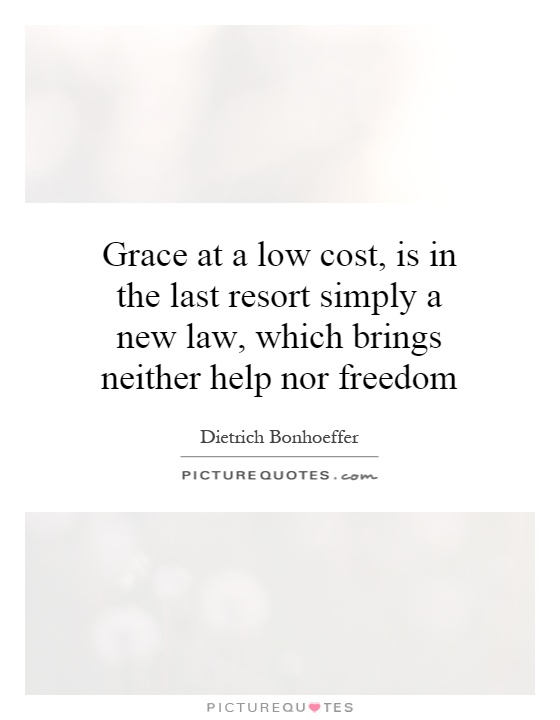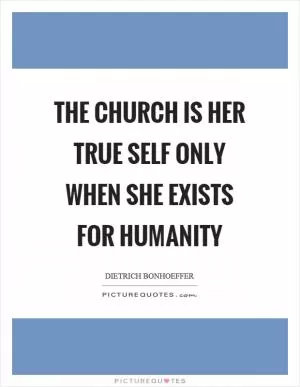Grace at a low cost, is in the last resort simply a new law, which brings neither help nor freedom

Grace at a low cost, is in the last resort simply a new law, which brings neither help nor freedom
Dietrich Bonhoeffer, a German theologian and pastor, is known for his profound reflections on the nature of grace and the Christian life. In his writings, Bonhoeffer often emphasized the importance of grace as a free gift from God, unearned and undeserved by human beings. He believed that true grace could not be bought or earned through good works, but was freely given by God out of His love and mercy.In the quote “Grace at a low cost, is in the last resort simply a new law, which brings neither help nor freedom,” Bonhoeffer is cautioning against the danger of reducing grace to a mere transaction or commodity that can be obtained through human effort or merit. He believed that when grace is cheapened or devalued in this way, it loses its true power and significance in the life of the believer.
For Bonhoeffer, true grace is costly because it requires a response of faith and obedience from the recipient. It is not something that can be obtained through a simple formula or set of rules, but requires a deep and personal relationship with God. Grace, in its truest form, is a transformative force that brings about true freedom and liberation from sin and death.
When grace is seen as a low-cost commodity that can be purchased or earned through human effort, it becomes nothing more than a new law that binds and restricts rather than liberates and empowers. Bonhoeffer believed that true grace was a radical and revolutionary concept that challenged the status quo and called believers to a life of radical discipleship and self-sacrifice.












 Friendship Quotes
Friendship Quotes Love Quotes
Love Quotes Life Quotes
Life Quotes Funny Quotes
Funny Quotes Motivational Quotes
Motivational Quotes Inspirational Quotes
Inspirational Quotes